Lucknow: The excitement of Kumbh isn’t limited to devotees. Women working at Akanksha’s Masala Mathri Kendra in Lucknow are the newest visitors to the Maha Kumbh mela in Prayagraj. But they’re there as entrepreneurs.
Akanksha, a women-empowerment programme started in 1987 by Shyamala Kalyan Krishnan, the wife of then-UP Chief Secretary, began as a benign charity initiative for the wives of IAS officers. Over the past year, it has become a robust enterprise, undergoing significant evolution and expansion. This transformation is an acute portrait of how civil services in India are changing, with the percentage of women selected in UPSC exams rising from 3 per cent in 1997 to 34 per cent in 2022.
The IAS Officers’ Wives Association (IASOWA) in UP is no longer headed by just the wife of an IAS officer. In July 2024, Rashmi Singh, a 2007-batch IAS officer from the AGMUT (Arunachal Pradesh-Goa-Mizoram and Union Territory) cadre, became the first IAS officer to be its president. She is the Principal Resident Commissioner of Jammu and Kashmir and happens to be married to UP’s Chief Secretary, Manoj Kumar Singh. That is how she took over the reins of IASOWA UP, and its social service wing, Akanksha.
Long known for making masala and mathri (salty snacks), Akanksha is transforming for the better. With an IAS officer at the helm, focus has shifted to professionalism, processes and performance. The Lucknow-based enterprise has digitised operations and established itself in Agra with plans to expand into Noida. It has also diversified into ladoos, chikki, bags, handicrafts and more.
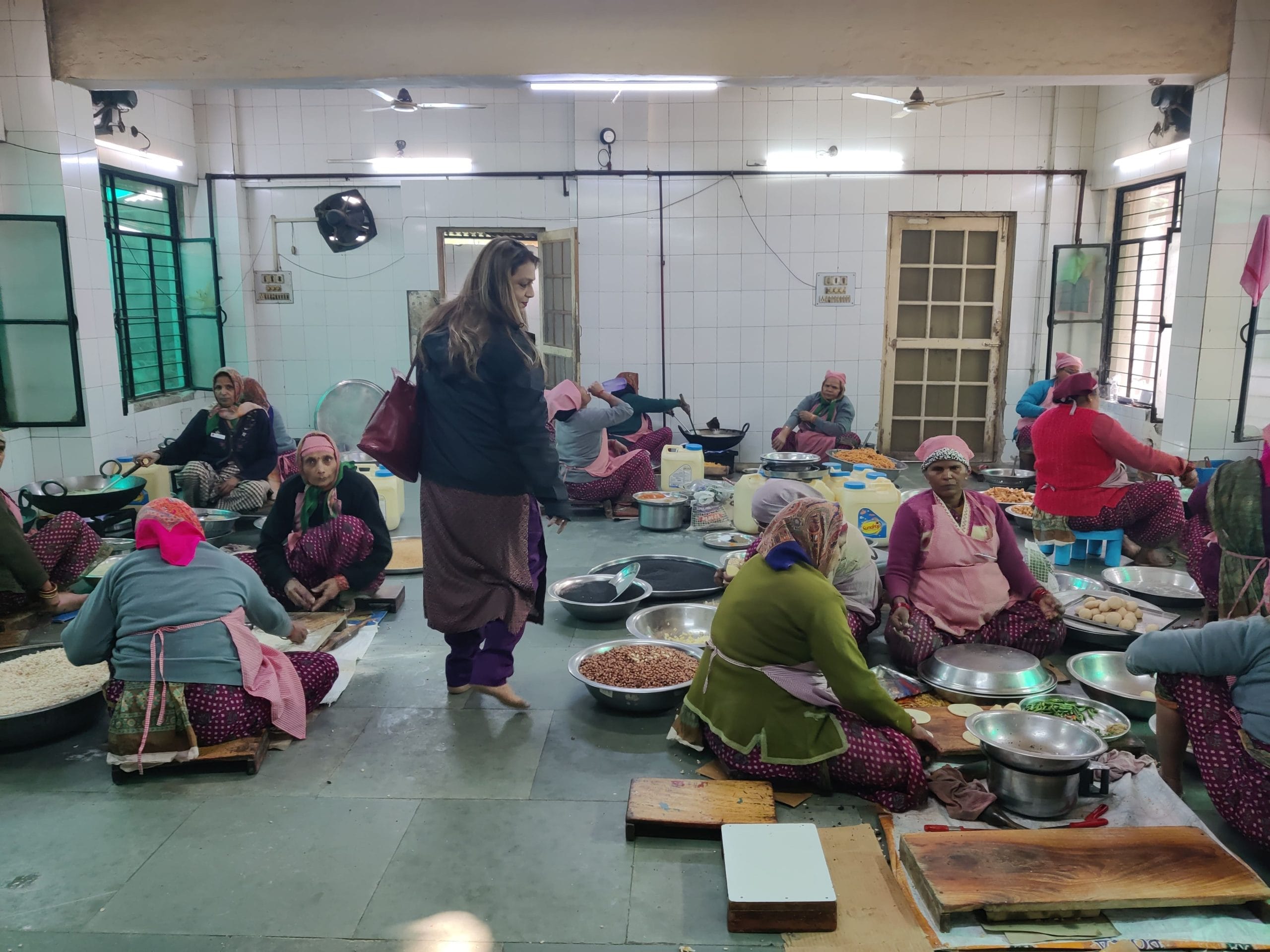
“In my recollection, these [IASOWA] associations were primarily social spaces where IAS officers’ wives gathered for lunches, tea, yoga sessions, and light-hearted conversations,” said Shailaja Chandra, retired civil servant. “When an IAS officer takes on this role, it naturally brings a different perspective—one rooted in strategy and public service,” she added.
Moving to Maha Kumbh
Rashmi Singh’s phone rings non-stop. She toggles calls from her Delhi and Jammu office as well as Lucknow’s IASOWA secretary. It’s a busy time for the Akanksha team. They just mounted a massive first-time haat (fair) of their products in November. UP Chief Minister Yogi Adityanath and Deputy Chief Minister Brajesh Pathak were chief guests. And CM Yogi couldn’t stop gushing about how much the group had morphed.
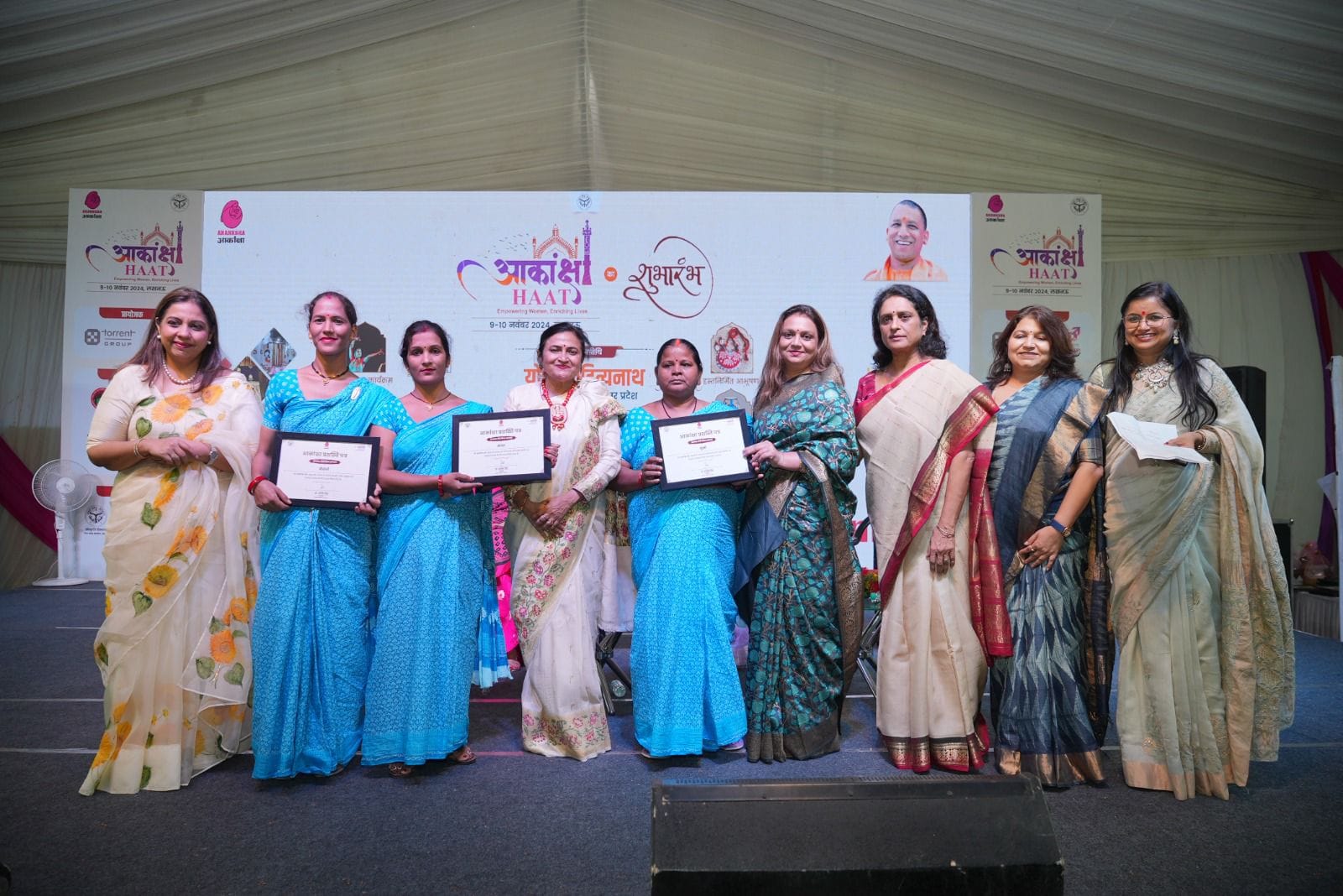
Yogi Adityanath’s presence motivated Akanksha workers as well as IASOWA members. For many, it was their first time seeing the CM in person.
“Many women saw CM Yogi for the first time and even stepped out of their homes for the first time. It’s not just about earning money; coming to a different state, meeting new people, and showcasing your work empowers you in many ways,” said Rashmi Singh.
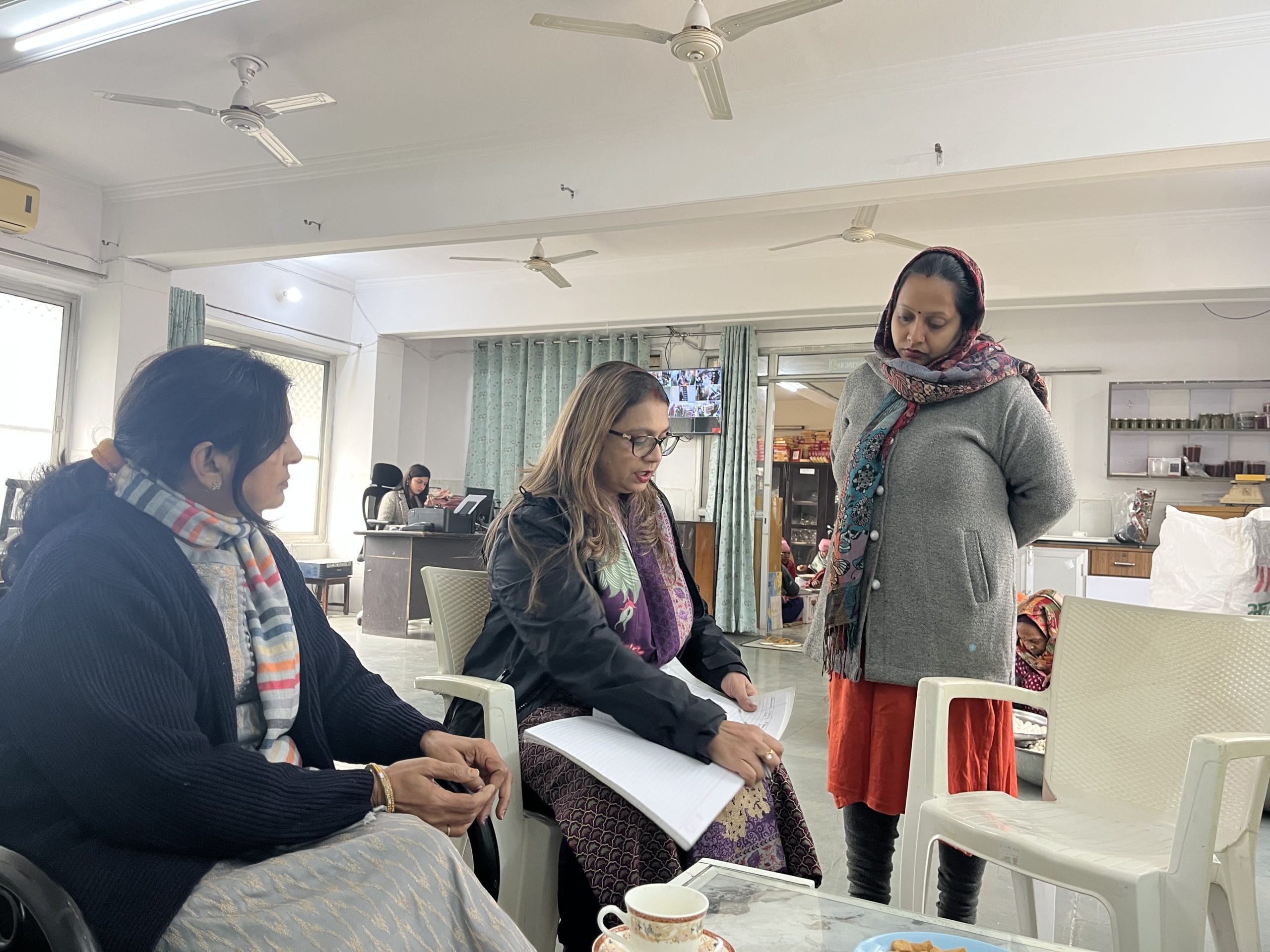
The two-day event featured numerous speakers and discussions. According to IASOWA members who spoke to ThePrint, four MOUs were signed during the event between Akanksha and the state government to produce and find market linkages.
“On the first day, one woman from a self-help group told me she had only earned Rs 2,000 and was disappointed. But by the end of the event, she had made Rs 30,000 and thanked me repeatedly for the opportunity,” said Pratibha, Secretary of IASOWA Uttar Pradesh.
Fifty-two-year-old Halima, who has been associated with Akanksha for over a decade, was thrilled to meet women from Kashmir at the haat. They bonded, shared stories, and looked forward to meeting again at the Kumbh Mela.
I thought you were just making masala and mathris, but now Akanksha is becoming so big that it will help the state’s women
Yogi Adityanath, UP CM
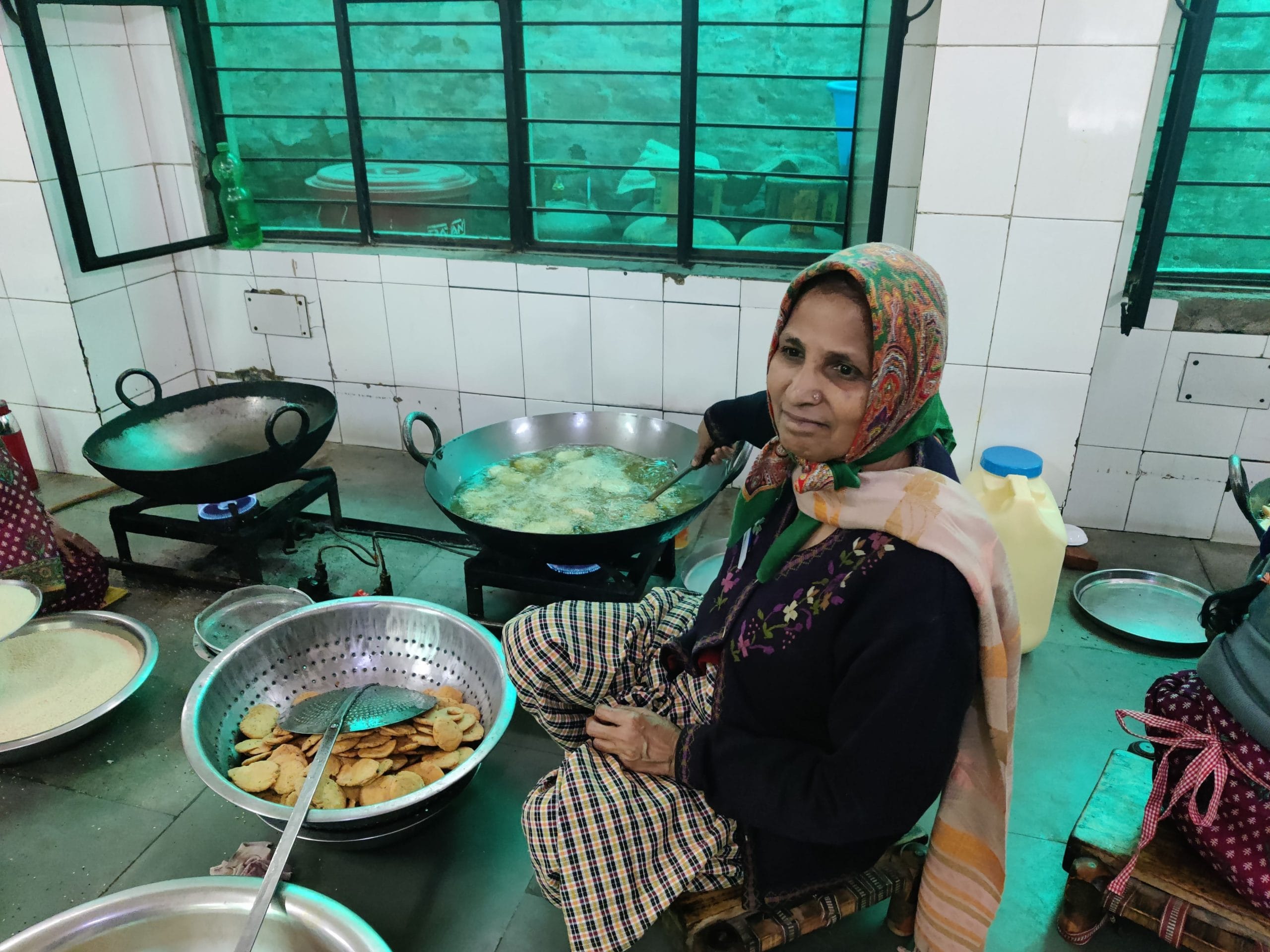
Now that they have made a big bang with the haat, their next big splash will be at the Maha Kumbh. The Akanksha centre in Lucknow is abuzz with preparations to fill up the 20 sales stalls they’ve set up Prayagraj.
Rashmi Singh discusses the procurement of raw materials while setting deadlines, and plans the next Zoom meeting.
“Akanksha is not just a project for me. I want to build market and supply linkages between this institution, self-help groups, NGOs and government bodies,” Singh said. “It took a while to change mindsets because they were set in an old way of doing things.”
She conducts weekly meetings about ambitious expansion plans, has streamlined storage and display at Akanksha’s Lucknow stores, and has digitised all the operations. The team has formed social media accounts for their products. Their first Instagram post last week was a photo of pink-apron clad women standing outside the Akanksha store in Lucknow. The caption read: Meet the rock stars of Akanksha Samiti, our incredible workforce of ladies who are breaking barriers and making a difference.”
Now these rockstars are in Maha Kumbh.
“I have never been outside Lucknow. Now, the thought of going to Kumbh fills me with immense pride, especially because I’m going there for work,” said 48-year-old Guddi, a worker at Akanksha Lucknow, as she sifted through loose raw materials at the centre.
Also read:
Expanding the scope
The most challenging venture for Rashmi Singh would be to open production centres and stores in all 75 districts of UP during her tenure. But it is easier said than done. To make this happen, she has to activate IASOWA in every district. And here is the rub: IASOWA’s current constitution says that it will always be headed and managed by an IAS officer’s wife in Lucknow and in the districts. Except that many districts now have women magistrates.
I have never been outside Lucknow. Now, the thought of going to Kumbh fills me with immense pride, especially because I’m going there for work
Guddi, Akanksha worker
Singh is parallelly working toward tweaking the charter of IASOWA.
“I kept seeing blank spaces or NIL written against some districts,” she said. “Until I can change things fully, I have made the rule that women District Magistrates can nominate another person to manage IASOWA in their areas or the wives of Sub-Divisional Magistrates (SDMs) and judges can be enlisted.”
Rashmi Singh’s strategic roadmap for IASOWA has garnered widespread support from the civil services community, with many members terming it a revolutionary step.
Shifting focus
Few associations in India match the scale and impact of UP’s IASOWA. Their work remains episodic and lacks a strategic vision. Associations in Assam and West Bengal, for one, focus on cultural activities or charitable work such as distributing blankets and medicines at health camps for the poor.
In 2022, the Assam chapter of IASOWA organised a meeting where it mandated that everyone wear something in floral prints. The same year, members visited old age homes in Guwahati and donated cheques. In 2016, the Delhi chapter organised a workshop on the art of making mocktails.
When an IAS officer takes on this role, it naturally brings a different perspective—one rooted in strategy and public service
– Shailaja Chandra, retired civil servant
By contrast, IASOWA in UP follows the model of actively contributing to livelihoods and creating opportunities for marginalised women. Their previous club-style meetings – dandiya nights and hair style and cosmetic surgery workshops – have almost disappeared.
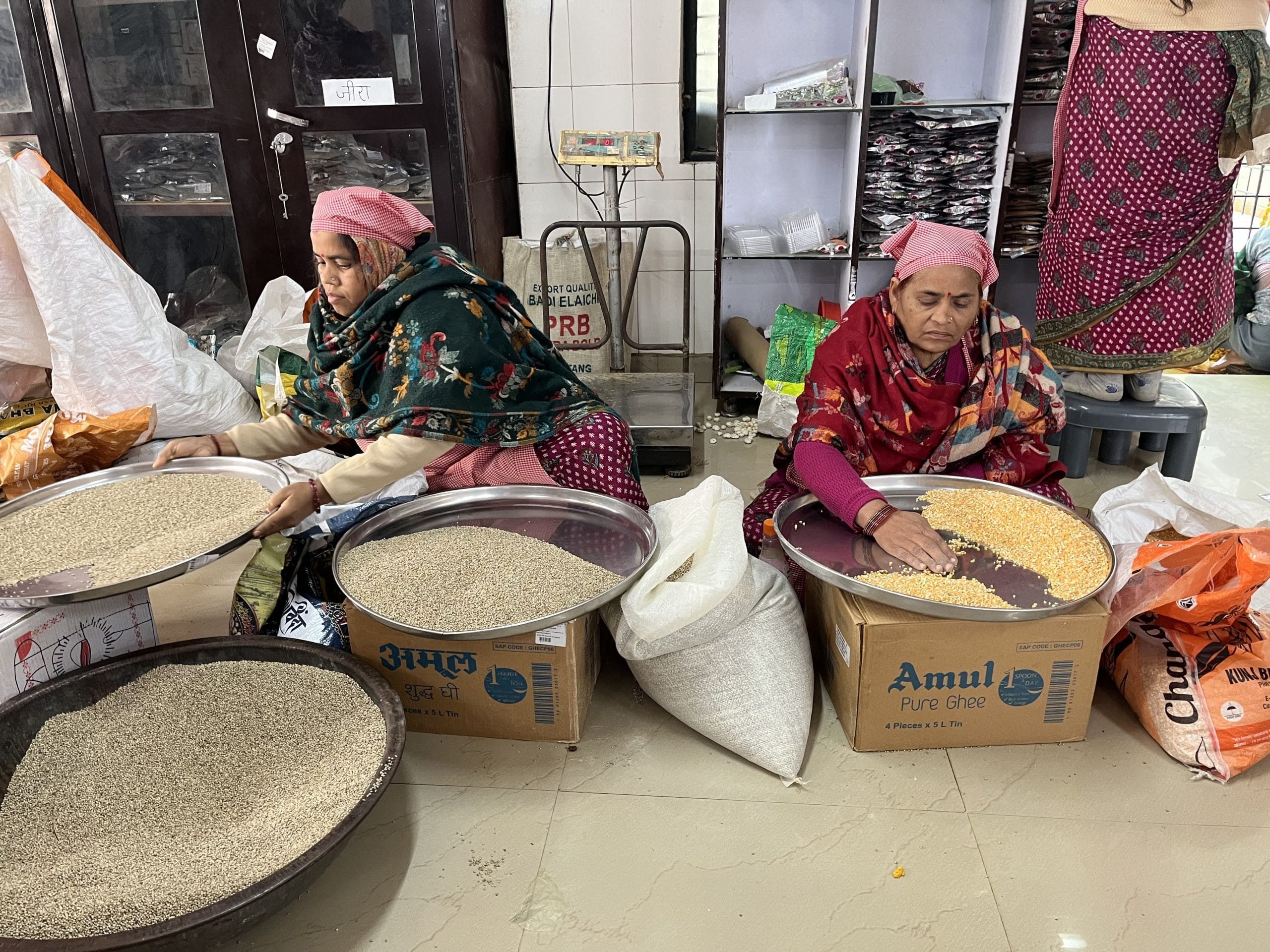
“When I was the president of IASOWA, I used to organise at least two events every month,” said Surabhi Ranjan, the president of IASOWA from 2014 to 2016. During her tenure, the number of active members jumped to 90 from just 25-30 in 2014. “I installed a machine for spice grinding. That increased the productivity of the centre as well,” she said.
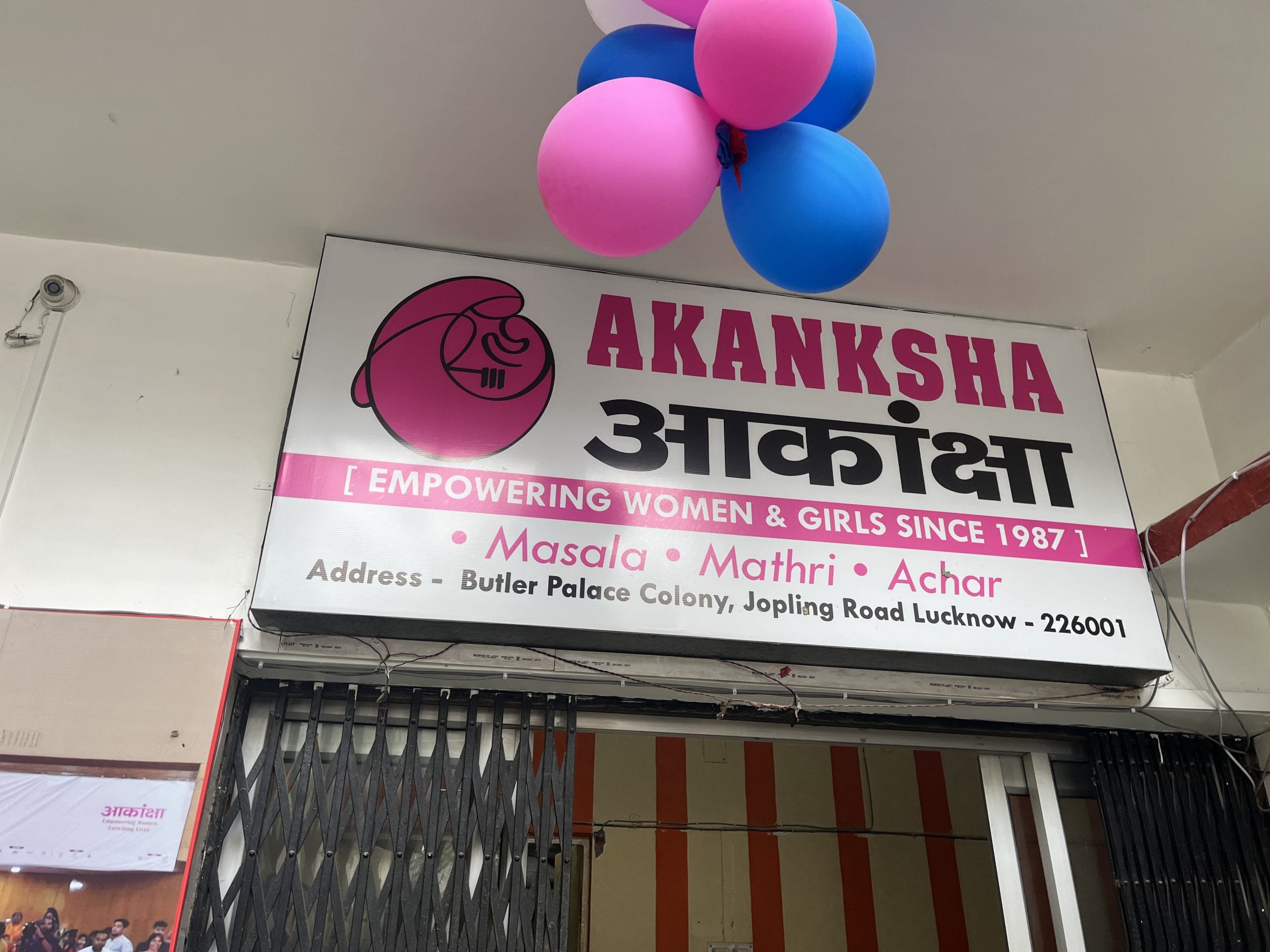
Ranjan also organised cultural events, even inviting Bollywood actor Ashwarya Rai’s make-up artist to Lucknow for a demonstration. Many participated enthusiastically in big numbers, she said.
“After my tenure (2016), there are not many such events,” Ranjan added.
The focus has now narrowed.
“When an IAS officer takes the lead, it brings a significant shift. They understand the structure and know how to mobilise resources to help people through the organisation,” said Shailaja Chandra.
Also read:
Before vs after
IAS Rashmi Singh took charge as UP IASOWA president in July 2024. In just six months, she has given a new vision to the association and drawn a roadmap by connecting it to the National Commission for Women and origanisations such as Drishti and SAWIT (South Asian Women in Technology).
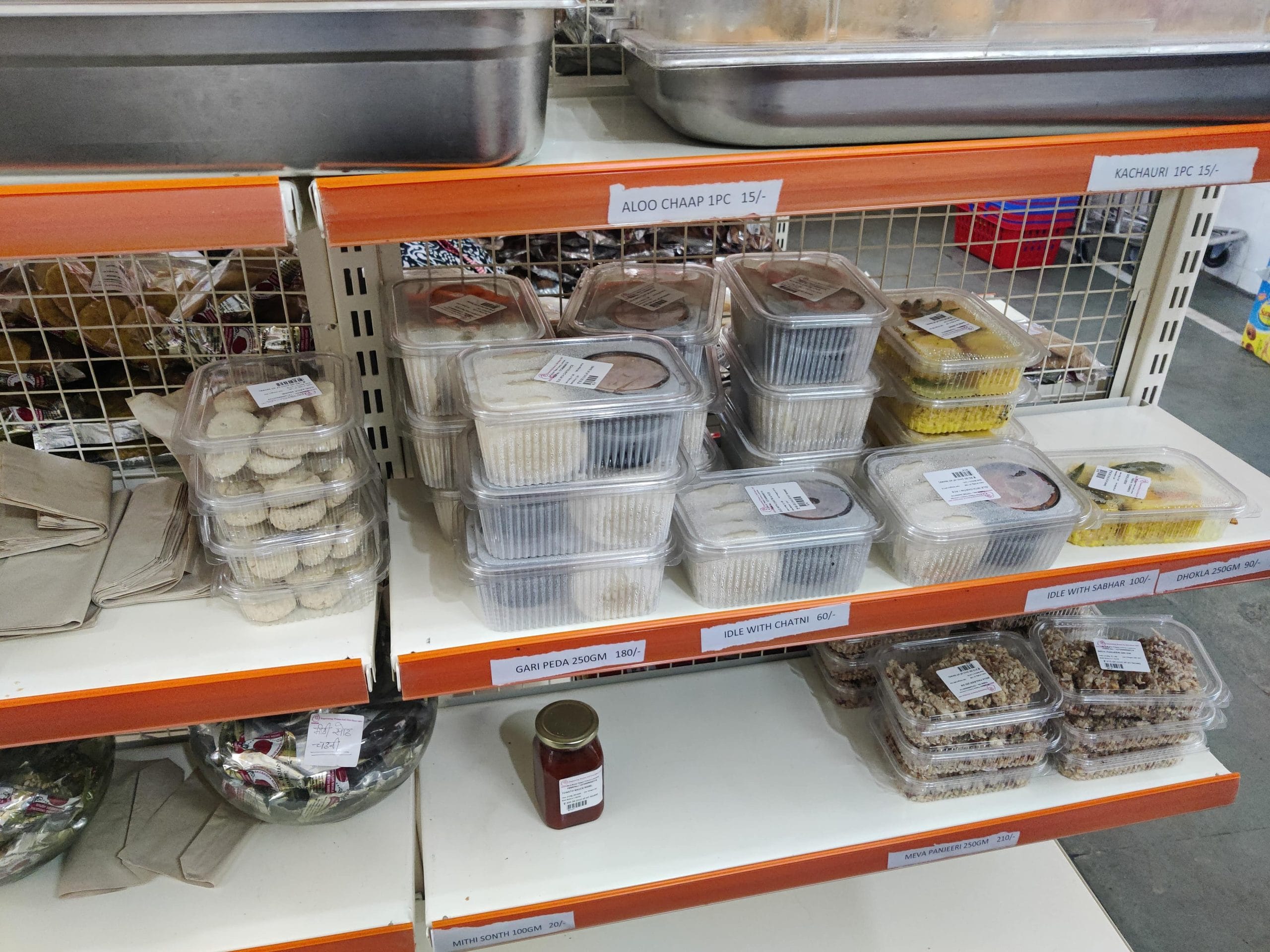
Rashmi Singh has also introduced a youth wing to invite young officers’ wives to become part of the association.
“There used to be a hierarchy in the association too, and I wanted to include as many people as I could to help. So, I introduced the youth wing to connect young officers’ wives to the association” Singh said.
The youth wing was established just a month ago, and efforts to absorb people are still underway.
“We have never seen the approach that Rashmi Singh provides to the association – be it connecting the Akanksha Masala Mathri Kendra to more districts, conducting haats, or moving forward,” said Rani Mohan, Vice President of IASOWA Uttar Pradesh.
The Akanksha Masala Mathri Kendra in Lucknow has three computer counters for printing bills and designated racks that are replenished every two hours as customers keep buying items. There is now a formal digital record of all raw materials and stocks.
The door to the Akanksha store opens at 11 am sharp. The crowd piles up. There are some clear fast-moving items – samosa, dhokla, chana vada. Trays empty as soon as they are filled.
“Our morning cup of tea is incomplete without Akanksha’s snacks,” said a customer, smiling.
Rashmi Singh is on a mission to take it beyond food and spices.
(Edited by Zoya Bhatti)



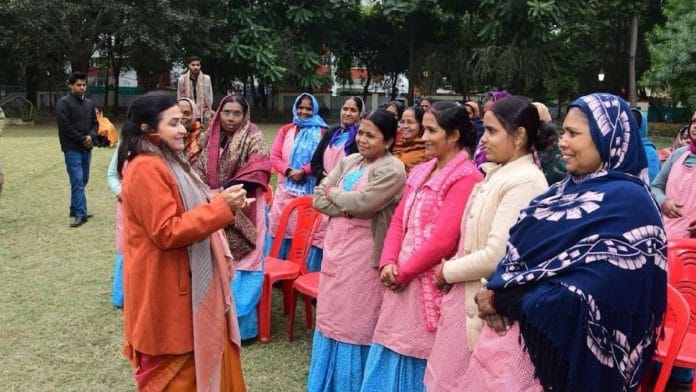



Thanks for the positive reportage and taking pains to do ground level coverage ! I am sure this gives further boost to Akansha products and thereby boosting incomes of many more women whose lives are touched by Akansha
Would just like to clarify that while I would have the rare distinction of being president akansha in an ex officio capacity besides being an IAS officer, reportedly two other lady officers in Indian revenue service also chaired Akansha when their husbands were CS, UP.